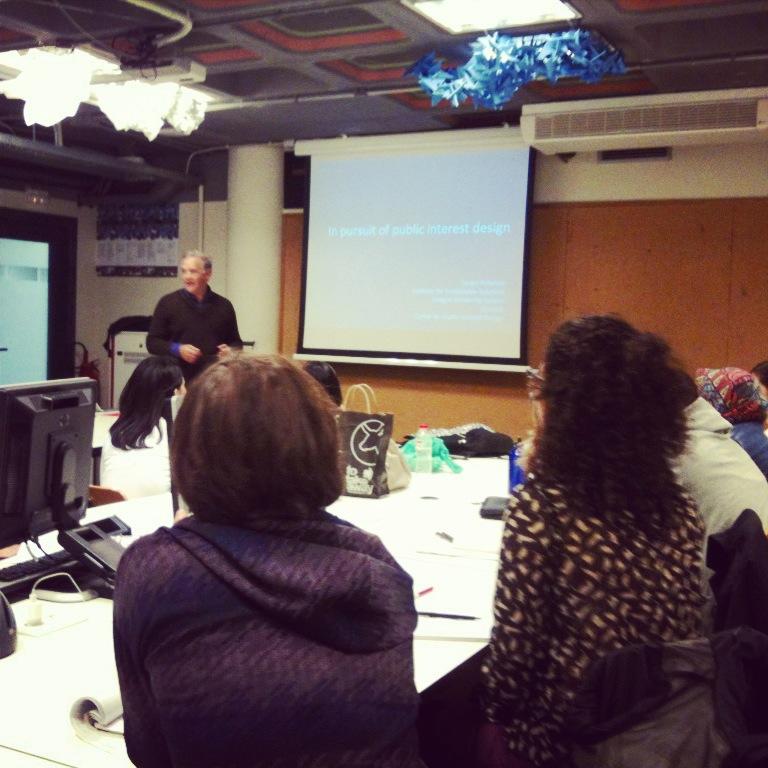Last week students had the opportunity to learn from one of the development field’s pioneers of participatory planning, Nabeel Hamdi. This week we welcomed another heavyweight from the field, who, as a matter of fact, was a student of Hamdi during his studies at MIT. Sergio Palleroni is the cofounder of BaSiC Initiative and a fellow of the new Institute for Sustainable Solutions at Portland State University, where he is also a professor.
 Palleroni has worked on housing and community development in the developing world since the 1970’s, both for not-for-profit, governmental, and international development and relief agencies such as the United Nations and the World Bank, and the governments of Chile, Colombia, Mexico, Nicaragua, India and Taiwan. He has received numerous awards, including the prestigious AIA Latrobe Prize in 2011, which awarded a study on best public interest practices that can be accessed in its entirety here.
Palleroni has worked on housing and community development in the developing world since the 1970’s, both for not-for-profit, governmental, and international development and relief agencies such as the United Nations and the World Bank, and the governments of Chile, Colombia, Mexico, Nicaragua, India and Taiwan. He has received numerous awards, including the prestigious AIA Latrobe Prize in 2011, which awarded a study on best public interest practices that can be accessed in its entirety here.
This week, Sergio will be teaching our students about asset-based development, mind-mapping and other strategies and initiating them in the SEED (Social Economic Environmental Design) evaluation tool. Sergio is one of the key forces behind this new metric system, which goes beyond the empirical method of LEED’s energy efficiency assessment to evaluate the social and economic facets and impacts of buildings, neighborhoods and community projects. Designed by a team of experts, it provides guidance, evaluation, and certification on the social, economic, and environmental aspects of a given project.
Sergio has co-authored the books Studio at Large and Expanding Architecture, and was also featured on the e2 design series.


